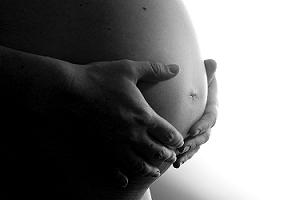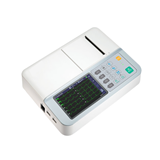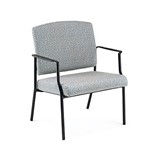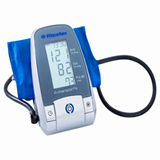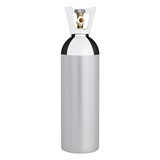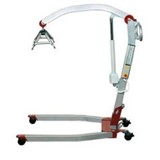The foetal heart rate is commonly measured on the labour ward and during pregnancy to monitor the health of the foetus. It requires training and skill to perform accurately. Over the past few years foetal heart monitors have been marketed to expectant parents who want to hear their baby’s heartbeat. However, if not used properly these devices can provide false reassurance, as our recent case describes.
A 34 year old woman presented urgently to the Princess Royal Hospital labour ward on a Monday, unable to detect her baby’s heartbeat with her foetal heart monitor. She was 38 weeks pregnant with her first baby and was fit and well, with no medical history. Screening blood tests, foetal anomaly, and subsequent growth scans had shown no abnormalities.
The preceding Friday she had noticed a reduction in foetal movements but had reassured herself by listening to the “foetal” heartbeat over the weekend. An urgent ultrasound scan showed no foetal heart activity and intrauterine death was diagnosed.
We assumed the patient had been listening to her own pulse or placental flow. We found no reason for the stillbirth. All blood tests and infection screens from the mother gave normal results. There was no significant microbial growth from the placenta or foetus, and the foetus seemed morphologically normal. Histopathological analysis of the placenta found nothing unusual.
There has been another recent case of false reassurance with a home foetal heart monitor. Although the baby did not die, it required a long stay in the neonatal intensive care unit and had serious neurological morbidity.
Marketing claims
After the experience in our obstetric unit, we conducted an internet search and were surprised by the number of foetal heart monitors available. There are two main types: sound amplifiers and Doppler ultrasound devices. A high street pharmacy and a large toy retail chain stock a prenatal listening (amplifying) system that claims to be “easy and safe to use to hear your unborn baby’s heart beat.”
However, without training the sounds detected could easily be misinterpreted. Although potential purchasers on the pharmacy’s website are cautioned that “it is not a medical device and should not replace medical supervision,” the toy chain’s website gives no such advice.
Other internet retailers are not so reserved, suggesting that Doppler devices can be used for reassurance in between hospital visits and scans. The safety of the Doppler ultrasound devices is stressed, in that they do no harm to the baby, but the risks of delaying seeking medical attention and the limitations of Doppler devices tend to be overlooked.
Current practice
Movements can vary considerably from foetus to foetus and at different times of the day. A recent Cochrane review noted that there was not enough published evidence to support foetal movement as a marker of foetal wellbeing. Nevertheless, our obstetric unit, like most, encourages expectant mothers to present to the labour ward for assessment if foetal movements reduce.
The normal foetal heart rate ranges between 110 and 160 beats per minute with a baseline variability of 5 beats per minute. On the labour ward, the foetal heart rate is usually measured over time with an electronic foetal monitor, which gives a paper trace, and is interpreted by experienced midwives and obstetricians.
Any decisions on foetal health are made only after taking careful histories of the events leading to presentation, examination, and consideration of the wider clinical context. Home monitoring devices can give only a snapshot of the heart rate and provide no indication of other important prognostic features.
Moving forward
The intrauterine death in our case may have been unavoidable, but the use of a foetal heart monitor certainly delayed presentation to hospital. Manufacturers and retailers have an obligation to make the limitations of these devices absolutely clear, as the untrained use of foetal heart monitors constitutes a risk to the safety of pregnant women and their unborn babies.
The risk will undoubtedly increase as these devices become more popular. The use of home monitors may also result in women unnecessarily referring themselves to general practitioners and obstetric units when they cannot hear the foetal heart because of inexperience. We asked the retailers how many devices they had sold or hired out but received no reply.
Obstetric services need to educate expectant mothers about the limitations and the potentially fatal consequences of untrained use of foetal heart monitors and to present clear guidance about when to seek medical review.
This case has been reported to the UK’s National Patient Safety Agency.

